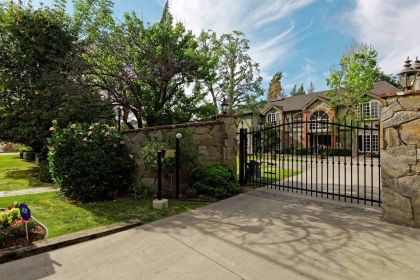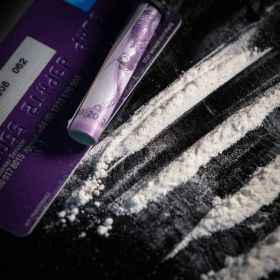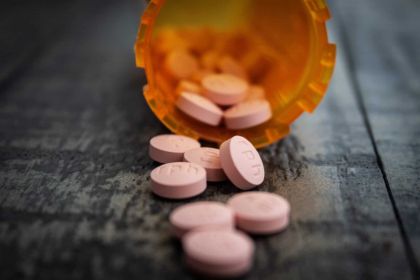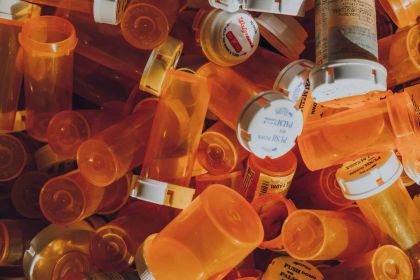Rehab Treatment Recovery Center for Prescription Drug Addiction In Los Angeles, CA
Offering a blend of luxury and therapeutic care, Harmony Place provides a comfortable haven for those seeking an effective prescription drug rehab in Los Angeles, CA. Our rehab facility is a place of peace and healing, where cutting-edge treatment meets compassionate care. Here, clients are empowered to navigate the complexities of addiction through individualized programs that address the root causes of dependence, ensuring a journey toward recovery that is as lasting as it is rewarding.
Understanding Prescription Drug Addiction and Rehab Treatment
Even when taking a pharmaceutical drug exactly as prescribed, there is still a significant risk of addiction.
Whether it’s pain medication following surgery or a sleep aid, just because a doctor prescribes a medication doesn’t make it safe or risk-free. As a result, some people unintentionally find themselves addicted to their medications. For this reason, we offer confidential, safe, and effective prescription drug rehab in Los Angeles, CA.
To clarify, even if someone is not misusing or abusing their medication, they can develop a dependence on many types of prescription drugs. Addictive drugs flood the brain with feel-good chemicals. This can lead to repeated misuse and dependence on the drug to achieve the same pleasurable feeling.
In time, people require more of the same medication to achieve the same level of feeling. This is called tolerance. Once someone develops a tolerance and their medication is not working the way it used to, they seek more of the drug. Sometimes, without their doctor’s approval. This forms an addiction that becomes stronger and more challenging to quit.
Prescription Drugs and the Brain
Prescription drug addiction profoundly affects the brain. Thus, altering its chemistry and functioning in significant ways. When prescription drugs are abused, they disrupt the brain’s reward system by flooding it with dopamine, a neurotransmitter associated with pleasure and reinforcement of behaviors. Over time, this leads to changes in the brain’s neural pathways, affecting decision-making, impulse control, and emotions.
Eventually, the brain adapts to the excessive dopamine levels caused by drugs. Which diminishes the natural production and impacts the ability to experience pleasure from everyday activities. This adaptation results in addiction. Whereas, the brain begins to rely on the drug to maintain dopamine levels and function normally.
Recovery involves medical and therapeutic interventions to help retrain the brain and restore its natural balance. However, the effects on the brain can be long-lasting, necessitating a comprehensive approach to prescription drug addiction treatment. Harmony Place is here to help those who seeking rehab for prescription drugs. We invite you to call our 24/7 hotline. We offer treatment solutions for addiction as well as co-occurring mental health disorders at our prescription drug rehab in Los Angeles.
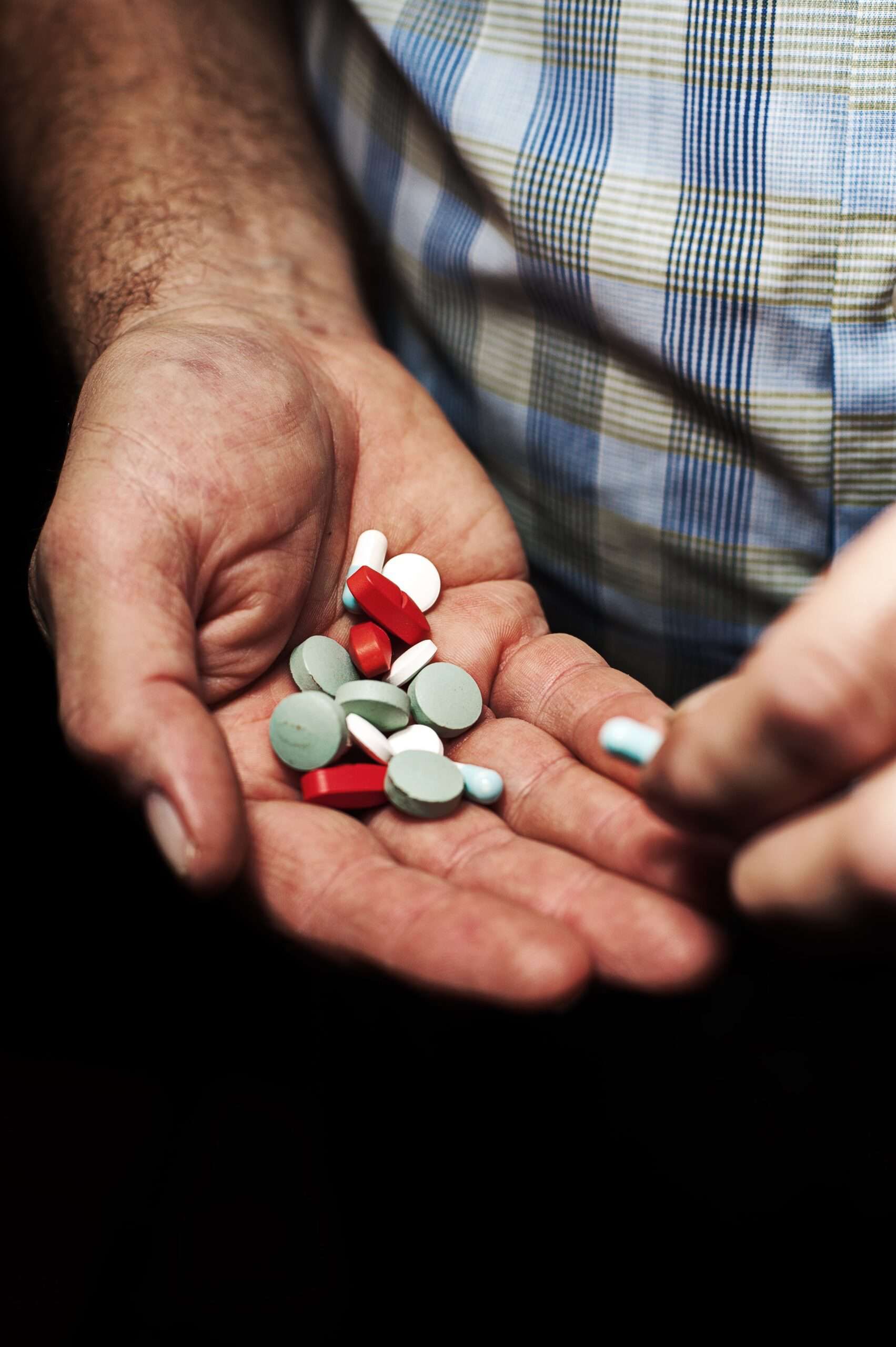
Common Prescription Drugs That Lead to Addiction and Abuse
Not all pills are created equal. Some prescription drugs carry an inherent risk for misuse and are more addictive than others.
The following medications commonly lead to dependence and addiction:
Anti-anxiety meds, or anxiolytics, are among the most abused prescription drugs. Barbiturates, like Fioricet for headaches, also fall within this classification. However, more commonly, people come to our prescription drug rehab in Los Angeles for benzodiazepine addiction treatment.
What are benzodiazepines (benzos) commonly prescribed for?
- As a sleep aid
- To treat anxiety and/or panic attacks
What are some examples of benzos?
- Klonopin/clonazepam
- Xanax/alprazolam
- Valium/diazepam
- Ativan/lorazepam
Pain medications, particularly opioids, pose significant risks if misused. They can be highly addictive. Consequently, this leads to physical dependence and increased tolerance, where larger doses are needed to achieve the same effect. This misuse can result in life-threatening respiratory depression, overdose, and even death. Moreover, long-term use alters brain chemistry, impacting mood and cognitive function. There’s also the risk of withdrawal symptoms when stopping the medication. Withdrawal can be severe and challenging to manage without professional medical detox. It’s crucial to use pain medications as prescribed and under the guidance of a healthcare professional to mitigate these risks.
Some names for common prescription painkillers are:
- Codeine
- Vicodin/hydrocodone
- Percocet/oxycodone
- Fentanyl
- Dilaudid
- Methadone
- Demerol
- Morphine
Stimulant use or depressant use can easily lead to addiction. Adderall, for instance, is almost pure methamphetamine. Additionally, Xanax is also powerful and addictive.
People like the feeling stimulants give them, such as:
- An increase in mental and physical energy
- A revved-up feeling of euphoria
Some examples of commonly prescribed stimulants include:
- Adderall
- Ritalin/methylphenidate
Some antidepressants have addictive properties. After a period of taking these medications, sharp withdrawal symptoms can occur if stopped abruptly. Antidepressants are known to cause a physical dependency and in some cases a psychological dependency.
Common antidepressant medications include:
- Zoloft/sertraline
- Prozac/fluoxetine
- Celexa/citalopram
- Lexapro/escitalopram
- Cymbalta/duloxetine
- Wellbutrin/bupropion
Marijuana is now approved for medicinal purposes and available with a card in a majority of states. Despite its increased acceptance in the medical community, marijuana’s potential for abuse must not be overlooked. Lack of motivation, impaired cognitive function, lethargy, and psychological addiction are common results of long-term marijuana use.
Call Us 24/7: (855) 652-9048
We are an in-network provider with Anthem, First Health Network, Multi-Plan, Beacon, HMC, Humana, Aetna
Long-Term Effects of Benzo Addiction
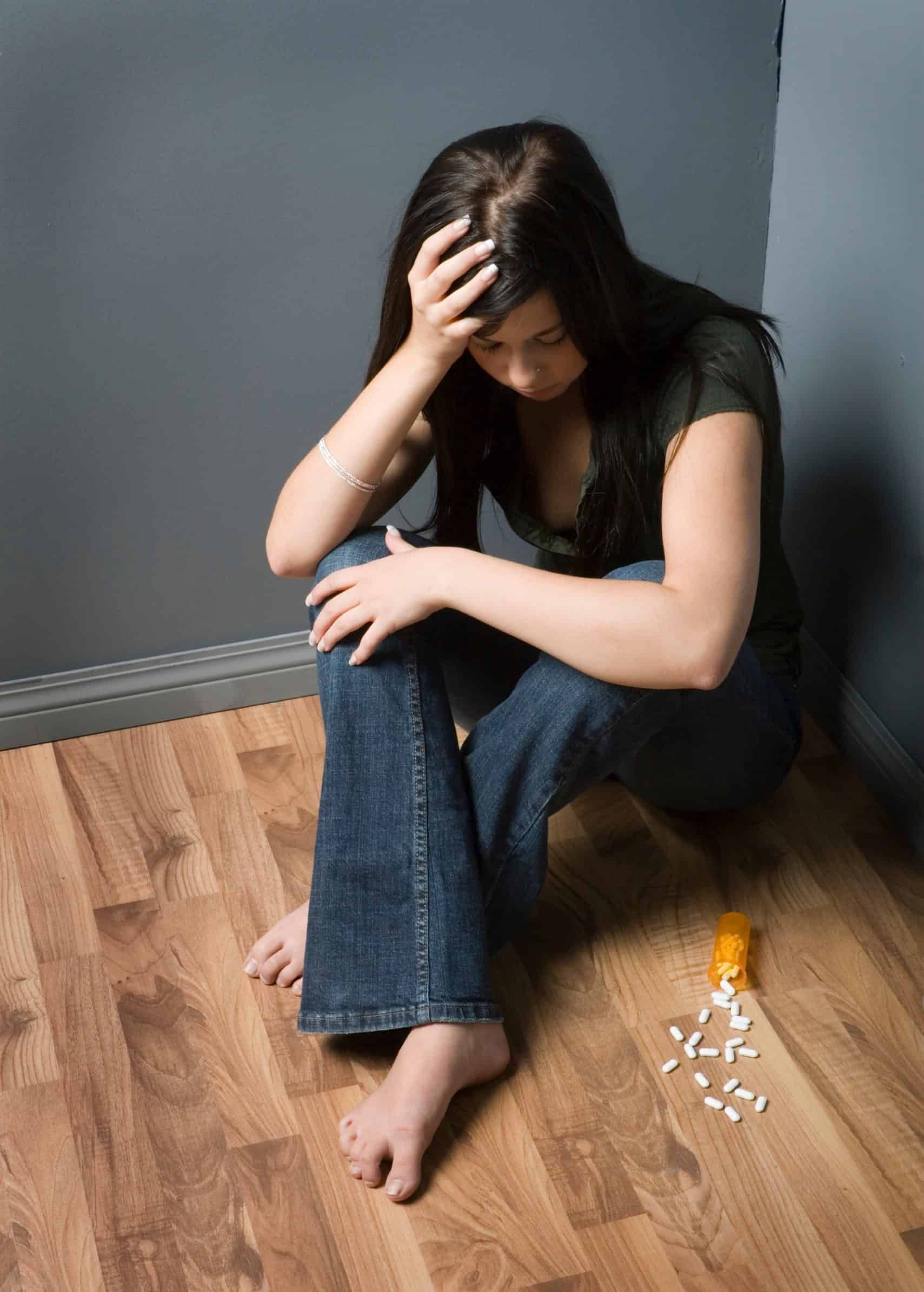
Benzodiazepines have been in pharmaceutical circulation for more than 50 years. Despite concerns, they are among the most prescribed medications in the U.S. Valium was commonly prescribed in the 1960s and 70s, but today, Xanax is the most prevalent drug in this class.
The rate of benzo-related overdose deaths has been skyrocketing over the past 20 years. Especially, in recent years. According to the Centers for Disease Control and Prevention (CDC), in 2021 benzos were also involved in 14% of opioid overdose deaths.
While the most gripping effects of long-term benzo use are addiction and dependence, there are many other serious side effects. Accentuated in cases of misuse and abuse, being on benzodiazepines long-term can cause:
- Anxiety
- Fatigue
- Poor concentration
- Slowed breathing
- Respiratory distress
- Death
The battle over prescription drug addiction is not easily won. It takes motivation, a desire for a better life, and the willingness to change.
Request a 100% Confidential Callback
The Dangers of Self-Detox at Home and Why You Should Leave it to Harmony Place

It’s never a good idea to self-detox at home when someone is dealing with potent prescription medication. In fact, it is dangerous. Safe medical detoxification requires clinical monitoring at a qualified rehab for prescription drugs with access to proper medical care 24/7.
Our prescription drug rehab in Los Angeles offers detox services to ensure our clients are safe during the initial stage of recovery.
Anxiolytics have a powerful effect on cognition, making the withdrawal excruciating. Detoxing from benzos is particularly dangerous for a few reasons:
- Possible acute withdrawal symptoms include serious side effects, such as:
- Hallucinations
- Suicidal thoughts
- Seizures
- Coma
- Death
- Without immediate medical help for the more serious side effects, fatalities are much more likely to occur.
- Quitting cold turkey carries a statistically higher chance of relapse.
-
Absolutely the best recovery center around.
I am forever grateful to have had this experience. I would recommend anyone who wanted help to come here. This place literally saved my life. I have overcome so many obstacles that always stood in the way of my recovery. It’s not just because I was ready… the approaches the therapists use come from an empathetic, compassionate, and understanding place. They were able to hold the mirror up and help guide me through making solid changes.
Daniel H.
August 2017 -
This place literally saved my life.
After overdosing, my parents forced me to check into rehab.After interviewing many other facilities, I decided to go to Harmony Place from my home in Phoenix. I was struggling with…a drug addiction and had been trying for years to recover. In the past, left 2 treatment centers AMA and 1 AWOL. I had very negative experiences in the other treatment facilities, especially with my therapists, so I didn’t go in with an open mind or good attitude- even though they worked with my parents regarding finances. However, the staff was patient with me. The techs were kind, knowledgeable, and many were in recovery themselves.
Mary M. -
They Answered on the First Call
When I called Harmony Place…I knew immediately that this was the right place for my child… Harmony Place is specifically designed for…and tailored to providing a safe environment. The staff [are knowledgeable and some are in recovery]. The staff knew each client and were on top of each client’s progress. Harmony Place has a small clientele and each client are able to receive all the help they were entitled to. I would recommend Harmony Place to anyone who is looking for a small setting… My daughter is currently going into sober living and her counselors did a wonderful job in finding a right fit for her – affordable, safe and a good environment for her.
Robyn
Loved-One -
I’ve Been Searching for the Perfect Words…
I left Harmony Place in August of 2015 and I have been searching for the perfect words to describe my experience during my stay; and still I can’t really find them. How do you really describe a place with a staff and a program that saved you? Addiction is a terrible thing to go through and a heart breaking thing for your loved ones to watch. Many people, including myself go into different treatment centers throughout their addiction searching for ways to find recovery. Nothing worked for me, not the 5 rehab stays I had, then, I came here.
Dominique C.
Alumni
Prescription Drug Addiction FAQs
Learn about the signs of prescription drug addiction and the recovery process by reading the answers to the following frequently asked questions about prescription drugs:
Here are some of the signs that someone you know may be misusing their prescription medication:
- Dizziness or impaired coordination
- Slurred speech
- Forgetfulness
- Unusual or chronic fatigue
- Sleep problems
- Drastic mood swings
- Going to the doctor often to refill meds
- Doctor shopping for new prescriptions
There are several undesirable consequences of prescription drug use disorder. Some of the potential drawbacks include:
- Physical and mental health problems
- Engaging in risky behaviors, including crime, due to impaired judgment
- Motor vehicle accidents
- Troubled and broken relationships
- Difficulties with work or academics
Doctors prescribe high-risk medications for myriad reasons. But some common health conditions that may warrant the use of risky medication include:
- Backache
- Pain
- Migraine
- Sleep disturbance
- Anxiety/panic attacks
- Depression
- Mood disorders
U.S. Prescription Drugs in Circulation
The Kaiser Family Foundation (KFF) counted nearly 4 billion prescription drugs filled in U.S. retail pharmacies in 2019. This does not include medications dispensed in clinics, hospitals, doctor’s offices, or pharmacies within a closed health system. Still, the takeaway is that billions of prescription drugs are in circulation in America.
U.S. Prescription Drug Abuse Stats
The CDC reports that 115 people die every day due to opioid overdose. Almost one-third of those individuals also have benzodiazepines in their systems.
We are experiencing such a great crisis with record highs in overdose deaths that we have a special task force tracking the opioid epidemic. Combining opioids with sedatives has become a prescription for death.
Most people who need addiction treatment have jobs. Working professionals worry that their careers could be affected by receiving treatment for prescription drug dependence.
However, laws are preventing this kind of discrimination. You should be legally covered to enter an addiction treatment program for a few weeks. However, as you might expect, your employer won’t be required to pay you during your time away.
Yes, because MAT has been shown to decrease opioid use, increase social functioning, and retain patients in treatment programs. New drugs, and improved medications, are being worked on all the time for opioid addiction treatment.
For example, in 2017, Sublocade was approved for once-a-month injection into those with opioid use disorder. This kind of long-term dosing has been shown to eliminate the need for daily doses of opioids and to improve the outcomes of patients in treatment programs.
Despite the fact that MAT is known to have excellent outcomes, fewer than half of all privately-funded treatment programs offer it. Only around a third of people with opioid dependencies end up receiving MAT treatment.
Find Long Term Recovery with Harmony Place Prescription Drug Rehab in Los Angeles, CA
Harmony Place offers a luxurious yet affordable prescription drug rehab in Los Angeles County. Backed by holistic modalities and clinical therapies, our program boasts a superior level of care. Our caring staff is experienced in treating prescription drug addiction and wants you to succeed in overcoming this insidious disease.
From detox and residential care to outpatient treatment with transitional living accommodations, Harmony Place offers the full continuum of care to those seeking to recover from addiction. We regard prescription drug addiction as being just as pernicious as alcohol or illegal drug addiction.
If you or a loved one have developed a dependence or addiction to prescription drugs, contact us today for a confidential assessment.
- Alcohol Addiction Rehab
- Drug Addiction Rehab
- Cocaine Addiction Rehab
- Fentanyl Addiction Rehab
- Heroin Addiction Rehab
- Ketamine Addiction Rehab
- Lunesta Addiction Rehab
- Marijuana Addiction Rehab
- Meth Addiction Rehab
- Opiate Addiction Rehab
- Opioid Addiction Rehab
- Painkiller Addiction Rehab
- Sedative Addiction Rehab
- Adderall Addiction Rehab
- Ambien Addiction Rehab
- Benzo Addiction Rehab
- Halcion Addiction Rehab
- Restoril Addiction Rehab
- Codeine Addiction Rehab
- Demerol Addiction Rehab
- Hydrocodone Addiction Rehab
- Librium Addiction Rehab
- Morphine Addiction Rehab
- Mysoline Addiction Rehab
- Oxycodone Addiction Rehab
- Ritalin Addiction Rehab
- Sonata Addiction Rehab
- Suboxone Addiction Rehab
- Valium Addiction Rehab
- Vicodin Addiction Rehab
- Xanax Addiction Rehab
- Zimovane Addiction Rehab

















